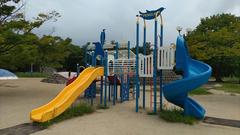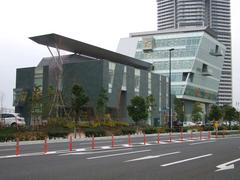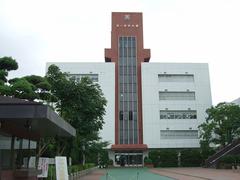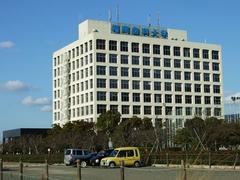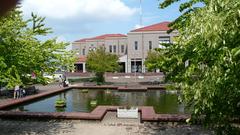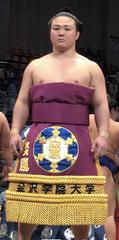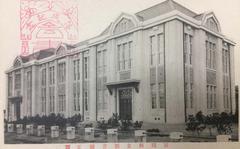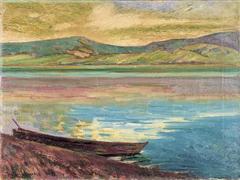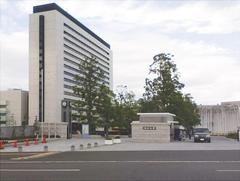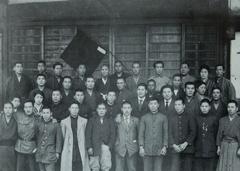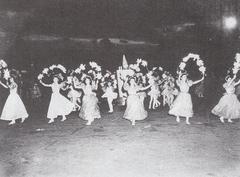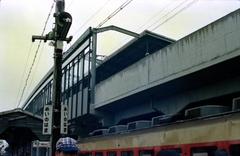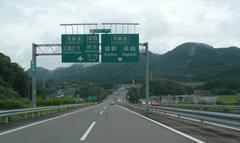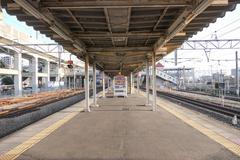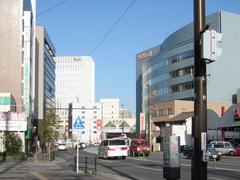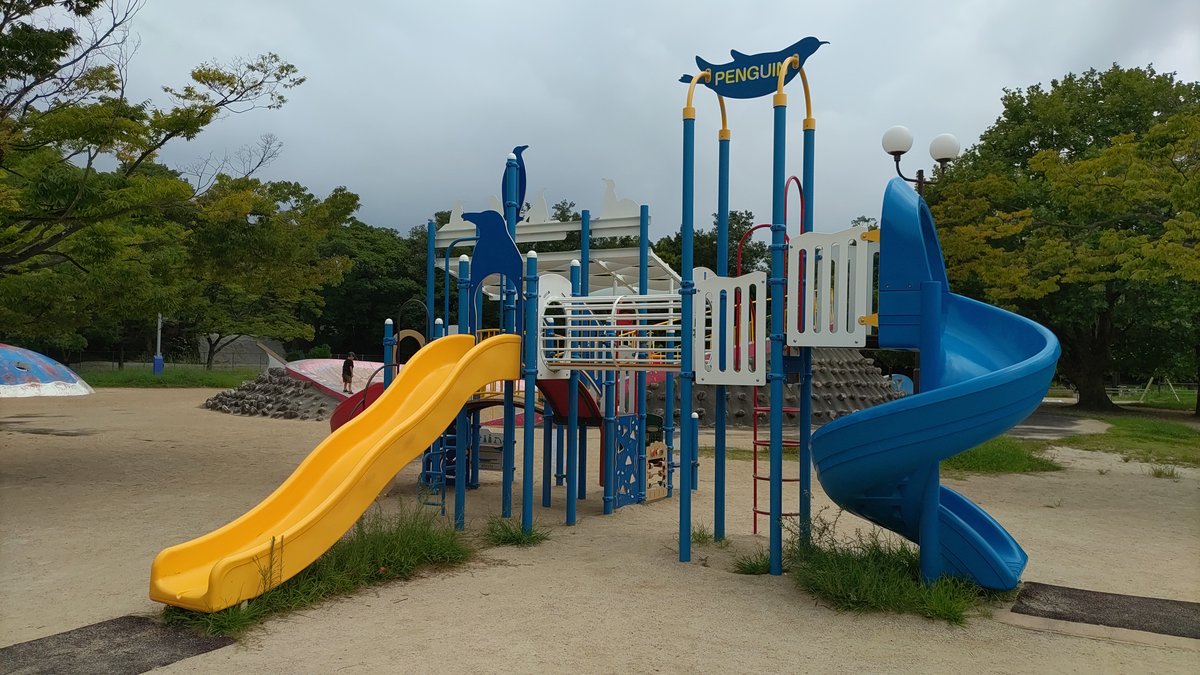
Ōhori Park Fukuoka: Visiting Hours, Tickets, and Historical Sites Guide
Date: 14/06/2025
Introduction
Ōhori Park (大濠公園, Ōhori Kōen) is Fukuoka’s premier urban oasis, seamlessly blending historical heritage, scenic beauty, and cultural richness in the heart of the city. Originally constructed as a defensive moat for Fukuoka Castle by Kuroda Nagamasa in the early 17th century, the park’s name—meaning “large moat”—reflects its enduring link to Fukuoka’s past (Ohori Park Official). Today, Ōhori Park is a beloved retreat for locals and visitors alike, known for its tranquil pond, classical Japanese gardens, and cultural attractions such as the Fukuoka Art Museum and Noh Theater.
This comprehensive guide covers all essential information about Ōhori Park: its compelling history, unique features, up-to-date visiting hours and ticket details, travel tips, nearby attractions, and accessibility. Whether you’re seeking relaxation, cultural discovery, or a scenic stroll, Ōhori Park offers an enriching experience rooted in Fukuoka’s storied legacy (Japan Experience).
Table of Contents
- Introduction
- Historical Background
- Architectural and Landscape Features
- Visiting Hours and Tickets
- Getting There
- Main Attractions and Facilities
- Special Events and Seasonal Highlights
- Accessibility and Visitor Tips
- Frequently Asked Questions (FAQs)
- Conclusion and Call to Action
- References
Historical Background
Origins and Early Development
Ōhori Park’s origins date back to the Keichō era (1596–1615), when Kuroda Nagamasa, lord of the Fukuoka Domain, constructed Fukuoka Castle. The area that is now the park was reclaimed from Hakata Bay to form an extensive outer moat for the castle’s defense (travelsetu.com). The name “Ōhori” literally means “large moat,” a nod to its historical function as a protective barrier. These original waterworks form the central pond that defines the park today.
Transformation into a Public Park
The moat’s conversion into a public park began in the late 1920s. Inspired by the classical Chinese garden style of Hangzhou’s West Lake, renowned landscape architect Honda Seiroku designed Ōhori Park to harmonize Japanese and Chinese aesthetics. The park officially opened in 1929, marking a shift from military fortification to urban green space (Japanistry). Its design, with expansive water, islands, and elegant bridges, remains a celebrated example of scenic garden planning.
Architectural and Landscape Features
Central Pond and Islands
The iconic central pond covers nearly 40% of Ōhori Park’s 39.8 hectares (GLTJP), encircled by a popular 2-kilometer path for walking, jogging, and cycling. Three small islands—Willow Island, Pine Island, and Sweet Flag Island—are linked by four historic stone bridges, recognized as Registered Cultural Properties of Fukuoka City (Japanistry). The islands provide picturesque resting spots and excellent views, especially during cherry blossom season and autumn foliage.
Japanese Garden
Established in 1984 to commemorate the park’s 50th anniversary, the Ōhori Park Japanese Garden spans 12,000 square meters. It features a classic sukiya-zukuri style teahouse, a central pond, artificial hills, meandering streams, and a “linen-falling” waterfall. Seasonal plantings and traditional landscaping make this garden a haven for peaceful reflection and cultural appreciation (ohoriteien.jp).
Fukuoka Art Museum
Situated on the park’s southeastern edge, the Fukuoka Art Museum houses an impressive collection of modern, contemporary, and Asian art, including works by Salvador Dalí and Yayoi Kusama. The museum offers rotating exhibitions, a café, and a gift shop for visitors (Japanistry).
Noh Theater
The Ohori Park Noh Theater promotes traditional Japanese performing arts such as Noh and Kyogen. Its architecturally striking venue holds regular performances and workshops, enriching the park’s cultural landscape (Ohori Park Noh Theater).
Visiting Hours and Tickets
Ōhori Park (Main Grounds):
- Open year-round, typically from 5:00 AM to 11:00 PM
- Free entry
Japanese Garden:
- Open 9:00 AM–5:00 PM (last entry 4:30 PM)
- Closed Mondays and year-end holidays
- Admission: ~250 yen for adults; discounts for children/seniors (ohoriteien.jp)
Fukuoka Art Museum:
- Open 9:30 AM–5:30 PM (last entry 5:00 PM)
- Closed Mondays and during year-end holidays
- Admission: ~200–300 yen for adults; discounts for students/seniors (Fukuoka Art Museum)
Please check official websites for the latest updates on hours and ticket prices.
Getting There
Ōhori Park is centrally located at 1 Chome-2 Ōhorikoen, Chuo Ward, Fukuoka, 810-0051.
- By Subway: Ōhori Koen Station (Fukuoka City Subway Kūkō Line) is a 2–5 minute walk from the park’s main entrance.
- By Bus: Several city bus routes stop nearby.
- By Car: Limited parking available; public transport is recommended during busy periods (Japan Experience).
Main Attractions and Facilities
- Central Pond: Ideal for walking, jogging, and birdwatching.
- Pedal Boat Rentals: Swan-shaped pedal boats and rowboats are available from spring to autumn.
- Children’s Playground: Family-friendly area with modern equipment.
- Cafés and Dining: The Boathouse complex offers waterfront dining and refreshments; Starbucks and other cafés are scattered around the park.
- Restrooms: Clean, accessible facilities located throughout the park.
- Bicycle Parking: Racks at entrances; cycling not permitted on main paths.
Special Events and Seasonal Highlights
- Cherry Blossom Viewing (Hanami): Late March to early April, with spectacular sakura blooms lining the pond (Visit Japan Travel).
- Autumn Foliage: Brilliant colors in late November.
- Summer Fireworks Festival: Although the main festival ended in 2018, the park is especially lively in summer evenings (Kanpai Japan).
- Winter Illuminations: Bridges and the Ukimi Pavilion are lit up, creating a magical nighttime atmosphere.
- Free Tea Ceremonies: Held twice a month in the Japanese Garden (entry and tea for 300 yen) (Japan Experience).
Accessibility and Visitor Tips
- Wheelchair Access: Wide, paved paths and accessible restrooms throughout the park.
- Language: Most signage is in Japanese, but English, Chinese, and Korean brochures are available.
- Family Friendly: Playgrounds, open lawns, and boat rides make the park ideal for families.
- Photography: The park is very photogenic, especially during cherry blossom and autumn foliage seasons. Tripods are permitted if they do not obstruct pathways.
- Pets: Dogs are welcome on leashes; owners must clean up after pets.
- Safety: Ōhori Park is safe day and night, but standard precautions are advised.
- Wi-Fi: Free Wi-Fi is limited; consider a pocket Wi-Fi for reliable connectivity.
Frequently Asked Questions (FAQs)
Q: What are Ōhori Park’s opening hours?
A: The main park is open daily from 5:00 AM to 11:00 PM. The Japanese Garden and Art Museum have separate hours.
Q: Is there an entrance fee for Ōhori Park?
A: Entry to the main park is free. The Japanese Garden and Fukuoka Art Museum require a small admission fee.
Q: Are guided tours available?
A: Occasionally, guided tours are available through the Fukuoka Art Museum or local tourism offices.
Q: Is Ōhori Park wheelchair accessible?
A: Yes, paved paths and accessible facilities are available.
Q: Can I picnic in the park?
A: Yes, picnics are welcome, but barbeques and open flames are prohibited.
Q: Are boat rentals available?
A: Yes, pedal and rowboats are available during the warmer months.
Conclusion and Call to Action
Ōhori Park is a vibrant symbol of Fukuoka’s cultural heritage and natural allure. Whether you’re drawn by its historical roots, tranquil gardens, or lively seasonal events, the park offers something for everyone. For the best experience, plan your visit with up-to-date information on opening hours and events. Enhance your trip using the Audiala app for guided tours, maps, and insider tips.
Ready to explore Ōhori Park? Download the Audiala app, follow us for more travel inspiration, and share your favorite Ōhori Park moments on social media!
References
- Ohori Park Official
- TravelSetu Ohori Park Tourism Guide
- Japanistry: Fukuoka Ohori Park
- Japan Experience: Ohori Park Garden Fukuoka
- Fukuoka Art Museum
- GLTJP Directory
- Visit Japan Travel
- Crossroad Fukuoka
- Kanpai Japan: Ohori Park
- Ohori Park Noh Theater
